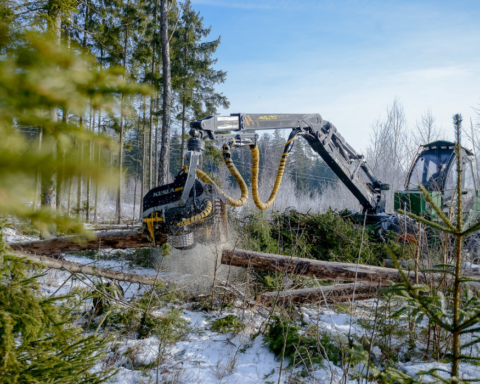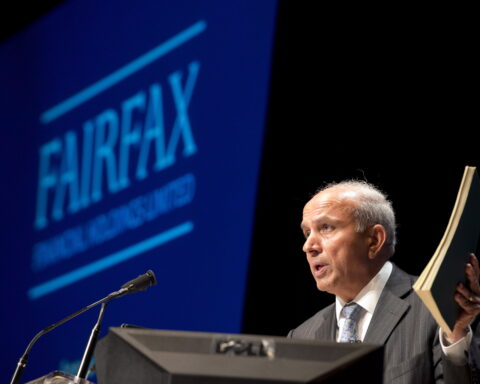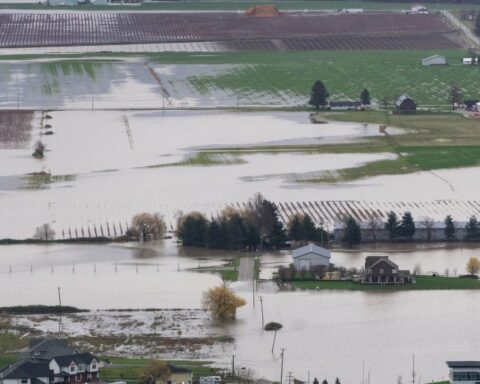If corporations are to implement net-zero targets rather than simply talk about them, the people at the top – their boards – need the skills to follow through. Yet, according to the investor group Climate Engagement Canada, there’s a growing gap between the responsibility of boards to oversee companies’ net-zero goals and their skills and knowledge to do so effectively.
This is particularly important with the major gatekeepers of Canadian capital, our big banks, which will make or break Canada’s achievement of net-zero depending on whether they continue to allocate capital to the polluting status quo or else pivot quickly to financing climate solutions.
According to the Transition Pathway Initiative, major Canadian banks fall short when it comes to walking the talk. They continue to finance fossil fuels at a rate far higher than their international peers, and far above the financing they provide for climate solutions. None have provided clear transition plans for how they will get there – an essential and unavoidable step in the shift to a clean economy. Commitments are easy; follow-through requires courageous and skilled leadership.
Most Canadian corporate boards are still made up of people equipped with skills and experience that reflect the economy of yesteryear. All of Canada’s major banks have board members who are senior executives at Canadian oil and gas majors or else do double duty on their boards.
Strong board leadership is necessary to drive real change. If boards don’t evolve with the times, companies will fail to transition their business, and they will fail to thrive in a changing economy.
Scotiabank has a board member who also sits on TC Energy’s board; CIBC has a board member who is also CEO of TC Energy and a board member of the American Petroleum Institute; RBC has a board member who is the ex-CEO of Fortis; BMO has a board member cross-posted at Cheniere and Suncor; and TD has board members cross-posted at AltaGas and Enbridge.
Moreover, most of these same individuals are billed by the banks as ESG (environmental, social and governance) experts, even as they raise the prospect of a systemic conflict of interest between their fossil fuel duties and the banks’ net-zero commitments.
A small but meaningful shift toward better climate governance at TD
Banks recruit board members based on a skills matrix. Three out of five of Canada’s major banks – CIBC, BMO and Scotiabank – include climate-related expertise as an optional element of ESG within their board skills matrix. RBC does not even list climate as part of its ESG skills, of which the “E” for “environmental” is also optional.
Yet, in response to a shareholder proposal that we co-filed at TD, then withdrew for settlement, the bank pledged to improve how it recruits board members, now requiring climate expertise to help navigate the bank’s transition. This essential prerequisite sets a higher standard for other Canadian banks and financial institutions to follow. TD has replaced its previously undefined ESG skills with “environment and social sustainability” skills, which it defines as “understanding of leading practices of corporate responsibility and sustainability, including measures of environmental (including climate-related) and social performance.” [emphasis added]
This means that climate is now a mandatory element of its skills matrix. Further, so that shareholders can better assess board nominees, TD also committed to disclose more biographical information. Finally, the bank committed to review its governance processes to ensure the effective oversight of all its business activities, including its commitment to net-zero.
RELATED
Canada’s Big Five banks keep moving further away from net-zero
Four ways Canadian banks can actually deliver on their climate promises
As banks backslide on climate, Canadian shareholder groups demand reforms
These are concessions made in a period of significant shareholder distrust of TD’s governance. Further details continue to come to light regarding lapses in the bank’s risk oversight that enabled gargantuan amounts of money laundering through its U.S. operations. The money-laundering issues are being addressed in a government-ordered governance review. It is this governance review that TD refers to in its shareholder proposal-withdrawal agreement, clarifying that it will be broad enough to include climate-risk oversight.
Admittedly, TD’s climate governance improvements are incremental. Their effectiveness will be measured by the evolving composition of its board and whether it guides the bank to a stronger transition plan and actual changes on the ground.
We were glad to see some positive board renewal at TD in this direction this year, with the shuffling out of a director who sits on the board of oil-sands major Cenovus and the shuffling in of nominee Nathalie Palladitcheff, a professional with climate expertise from experience as CEO of real estate company Ivanhoé Cambridge, which has an ambitious target to reach net-zero by 2040. Two directors with ties to fossil fuel companies still remain.
Strong board leadership is necessary to drive real change. If boards don’t evolve with the times, companies will fail to transition their business, and they will fail to thrive in a changing economy. Canada’s banks have a long way to go to integrate climate expertise into their boards, but we hope that the TD settlement can serve as a starting point for change.
Kyra Bell-Pasht is the director of research and policy and Matt Price is the executive director at Investors for Paris Compliance.







